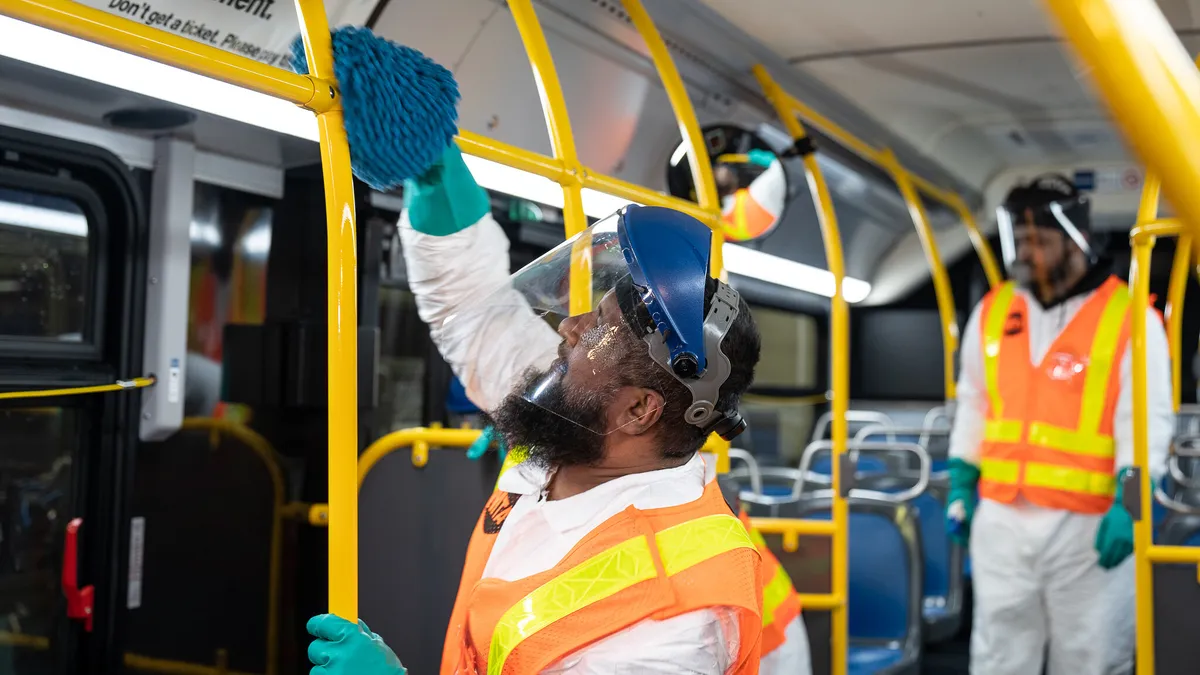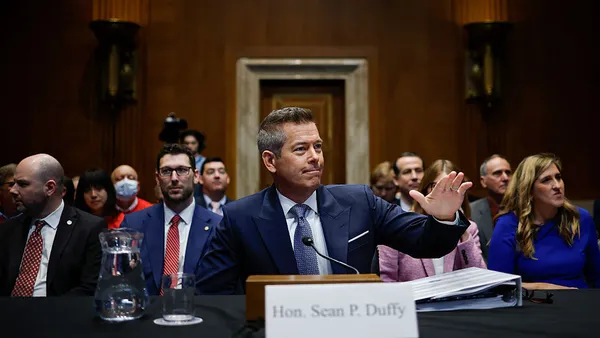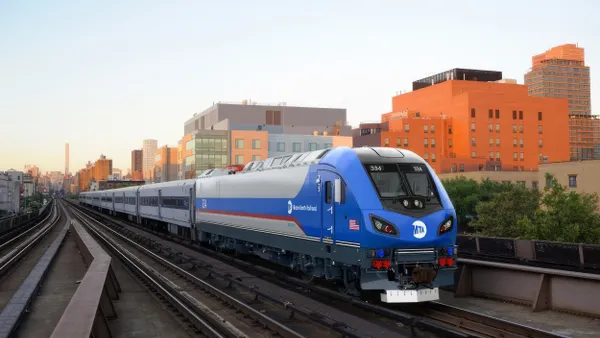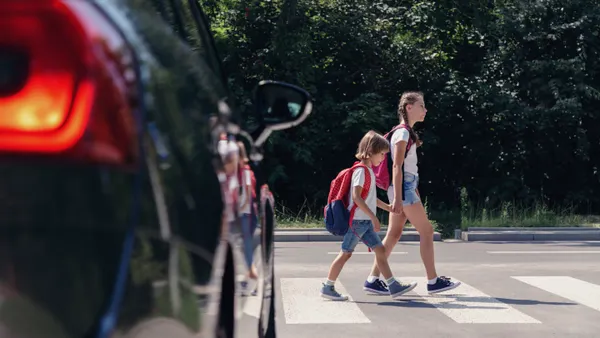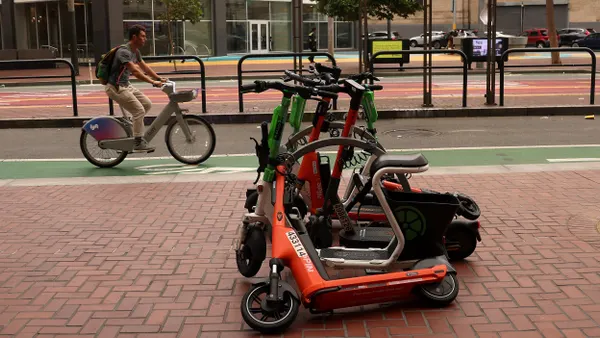Dive Brief:
- Ford Mobility's portfolio of smart transit subsidiaries — TransLoc, Ride Systems and DoubleMap — launched an initiative to provide transit agencies with free demand response software, consulting and planning services as they adjust to industrywide changes amid the COVID-19 outbreak.
- As the severity of the pandemic grows across the U.S., many transit agencies have shut down or dramatically reduced fixed route services, resulting in some labor cuts and obstacles for essential workers to get to their jobs. The initiative, Fixed to Flex, was launched to assist agencies in transitioning their fixed route services to flexible route services, while still utilizing the same vehicles and employees, Justin Rees, CEO of Ford Mobility's smart transit branch, told Smart Cities Dive.
- Rees said the platform is available to any agency that wishes to apply for it, including operators servicing hospitals, medical centers and research institutions where transportation is critical.
Dive Insight:
Transit agencies across the country have seen a drastic change to operations as the coronavirus spreads and more government officials call for mandatory stay-at-home orders and shutdowns of businesses and public gathering spots. While most transit agencies are still up-and-running, as they're considered essential services, many have implemented extreme sanitation measures, cut ridership costs and reduced lines of service due to minimal demand.
Fixed to Flex was launched in response to these changes, and made free as a way for Ford Mobility to be "good global citizens when it comes to trying to fight this together," Rees said. He explained that, while the platform has immediate benefits during this current pandemic, it can also help transit agencies make long-term adjustments so they're better prepared for the next crisis that occurs.
"I believe that with this global pandemic, everybody's way of working will be impacted," he said. "You're going to see a shift in the way transit operates in general, and it’s going to be challenging for the traditional ways of operations that they’d been using for so long. What happens if we go through this again?"
The impacts of COVID-19 on various communities, including those who work in transit, are severe. There's no telling how long this pandemic will last or if a similar event to this scale will occur again, but Rees is confident the Fixed to Flex platform will help agencies get through the most challenging parts of the transition.
And as a self-declared optimist, Rees said there can be good that comes out of this situation, particularly in how transit agencies reevaluate their operations, planning, product purchases and the wellbeing of riders and drivers.
"I think you’re going to see agencies take a better look at how they’re doing to protect their drivers and they’re going to do a better job in making sure their bus systems are clean and efficient," Rees said. "I think you’re going to see in general just a better, more careful look at what the impact is on people and their health. So yes, I think [transit] services overall are likely to get better."
To keep up with all of our coverage on how the new coronavirus is impacting U.S. cities, visit our daily tracker.



